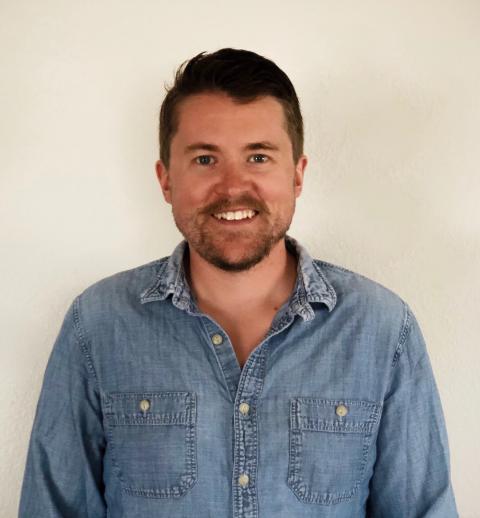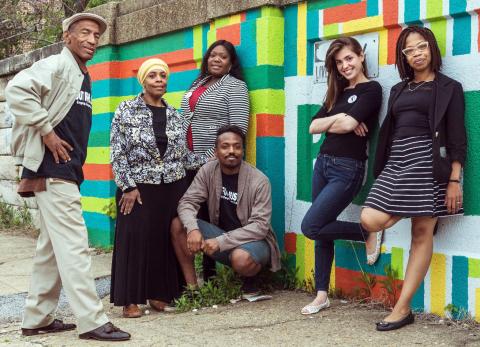
Tyler Mac Innis, '12G
Current position: Director, Welcome Home Coalition
Location: Portland, OR
Carsey Degree: Master in Community Development
"What this program does best is it prepares students to be able to recognize where problems actually exist."
Please describe your background prior to enrolling in the Master in Community Development program:
Prior to enrolling in this master’s program, I completed my B.S. in Political Science at Salem State University. I spent the last year of my undergraduate career organizing students to combat hunger in Salem, Massachusetts, and quickly realized that creating a more just food system meant grappling with poverty more broadly and all of its interconnected components.
What were the key features of the Master in Community Development degree program that attracted you to it?
The things that attracted me most to this master’s program were the interdisciplinary nature of the program and the applied nature of the coursework. I knew that if I wanted to be effective in the community development field, I would need to have a wide skill set, and the breadth of the Community Development program allowed me to attain that. After graduation, I quickly realized the benefits of having gone through an applied program. Graduating with tangible project management experience is a major asset to students looking to break into the community development field and/or improve their skill set.
Please describe your responsibilities in your current position:
The Welcome Home Coalition works to enact policies that raise new revenues and resources to address the housing crisis in Portland, Oregon, and the surrounding areas. Since forming five years ago, our coalition has helped invest nearly $1 billion in new revenue to build new affordable homes. As coalition director, I am responsible for working with our 65-plus organizational members to identify ways we can continue to increase the stock of affordable housing in the region and fund the supportive services that ensure people are able to stay stably housed.
How has what you learned in your master’s program helped you in your current position?
Despite our vast membership, Welcome Home is a small organization with just three staff members. That means we wear a lot of hats. A typical day for me can include: analyzing policy proposals, managing our finances, or organizing a workshop with people in the community. What I appreciate about the Community Development degree program at Carsey was that it provided me with tools in each of these areas and more. I am comfortable taking on new responsibilities in my work because of the foundation this master's program provided.
What were the most important things you learned while carrying out your capstone project?
The most important thing I learned in the program was how to effectively engage a community where you are an outsider working on a project. I worked with a project team through the university’s Cooperative Extension to develop direct marketing tactics for small-scale fishers to help them stay competitive against imported seafood. Through that capstone project experience, I was able to work with faculty in the field and see how they built credibility with the community in which they were working.
Prior to my time in Oregon, I worked in Jackson, Mississippi. I was tasked with organizing the state’s first anti-hunger coalition in five and a half months. Initially, as an outsider, it seemed like a daunting task, but I quickly reminded myself of my time working with Cooperative Extension and remembered how they were able to engage fishers by giving fishers ownership over the direction of the project and engaging them in the decision-making process. It may seem simple, but to me, those are the elements of community development work that will determine the success of a project.
What aspects of the master’s program did you enjoy most?
My favorite part of the program was the cohort structure. To have the same group of folks with me throughout the 14-month process was incredibly important. Those people served not only as a resource in class, but more importantly, they became a support system throughout the process. We have since scattered across the globe, but still keep in touch. The cohort is much more than an academic network while you are enrolled in the Master in Community Development program, it’s a lifelong professional and personal network as well.
Capstone project by Tyler Mac Innis: "Ensuring Sustainability and Profitability in New Hampshire's Fishery"
Have questions or want to discuss if the Master in Community Development program is right for you? Schedule a time for us to talk:
Robin Husslage, Program Manager
Have questions about admissions, tuition costs, or financial aid?
Contact Sanjeev Sharma, Carsey Admissions & Academic Advisor

